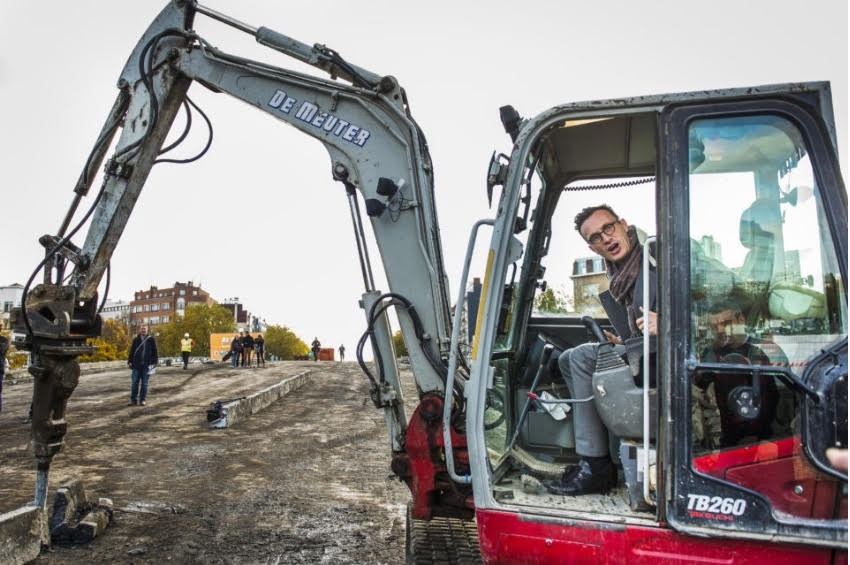Over the past five years, Brussels has made a jump-start with 'the end of everything-for-the-car' mentality.
In light of the forthcoming elections, Belgian financial newspaper, L'Echo, has drawn up a balance sheet of what Brussels Minister for Mobility, Pascal Smet (sp.a), calls "a city for people, not for cars".
The first marker of 'the end of the reign of the car' was the decision in September 2014 to tear down the 'concrete monster' of the Reyers' viaduct, built in the seventies, and to replace it by a green city boulevard. Works are still in progress with the renovation of the tunnel complex that takes longer than foreseen.
Tunnels: a constant source of worry
Tunnels are an endless source of worry for Brussels. Three years ago, Brussels Mobility Minister, Pascal Smet, created a specific multi-year investment plan (PPI). It detailed the emergency measures and major renovations needed for the 26 tunnels in Brussels. Spread over four years (2016-2020), it was budgeted at 411 million euro.
Another example of Smet's adagio 'city for people not for cars' was the renovation of the Place du Miroir (Reine Astrid) in Jette and the Place Dumon in Woluwe-Saint-Pierre.
There are also plans to equip the Brussels inner ring road with a dedicated cycling path separated from cars by 2023. Eight zones have been marked out, for which the Region already has the construction permits.
Bike usage exploded
According to the federal Mobility Agency, the usage of the bike has exploded in Brussels with 259% between 2005 and 2017, but its overall part in the mobility mix is rather modest: 4,4%.
When it comes to public transport, the STIB/MIVB has seen a 4% growth in travellers between 2017 and 2018. In 2015 the Brussels transport company decided to allocate a 5,2 billion euro investment to improve the offerings. It started testing with electric buses in July 2018 with the ‘full electric’ bus line 33. The goal is to electrify the entire bus fleet by 2030.
E-scooter capital
In the field of alternative mobility, Brussels has leapfrogged with legalising free-floating bike and e-scooter sharing. Especially in the capital the latter are omnipresent. In three months, their number has increased from 3.000 to 4.000 shared e-scooters.
A different story is the attempt of Pascal Smet to regulate the taxi sector with newcomers, like ride-hailing service Uber, which eventually collided on three occasions already with the views of the French-speaking socialist party, PS.
The Brussels Times/Belga

